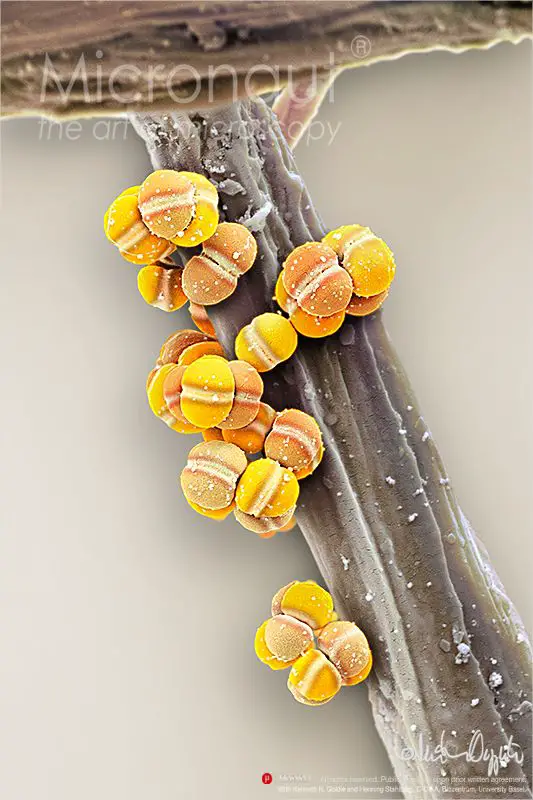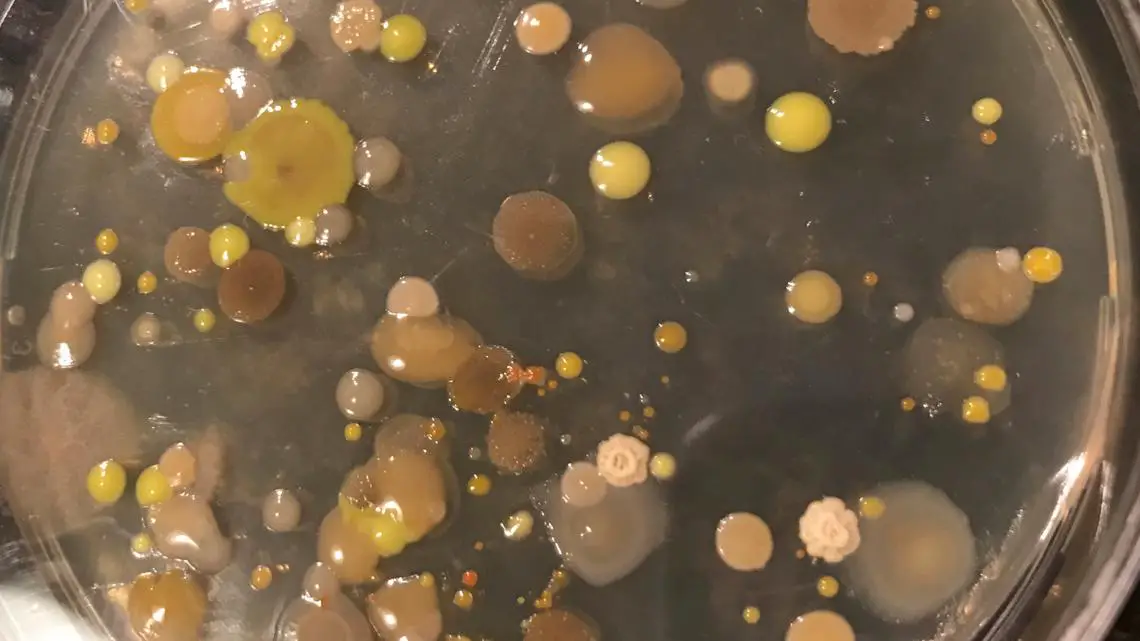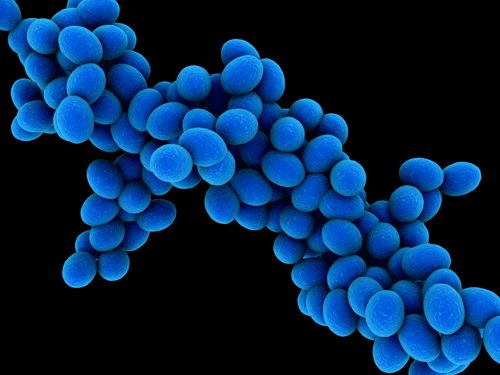The Effects Of Black Mold On Infants
Fact Checked
According to a study by the Mayo Clinic in 1999, nearly all chronic sinus infections are the result of mold 2. Mold is a tenacious substance that takes root in the presence of moisture. According to the Centers for Disease Control, “There is always a little mold everywhere — in the air and on many surfaces.” If you have mold in your home, your respiratory health and that of any small children or infants might be at risk.
If you are experiencing serious medical symptoms, seek emergency treatment immediately.
How Is Sepsis Diagnosed
The diagnose sepsis, your healthcare provider will look for a variety of physical finding such as low blood pressure, fever, increased heart rate, and increased breathing rate. Your provider will also do a variety of lab tests that check for signs of infection and organ damage. Since some sepsis symptoms can often be seen in other conditions, sepsis can be hard to diagnose in its initial stages.
Remove Black Mold On Bathroom Ceiling
Black mold can also be found on the bathroom ceiling, especially if the ceiling has been leaking for a long time. Removal ways of black mold on the ceiling are quite similar to those that you can do for the bathroom wall.
You can use the solution of detergent or a special chemical substance like fungicide.
When you need to remove black mold on the bathroom ceiling, it is important to find the safe place to reach the mold location.
Remove the ceiling paint using paint scrapper before you clean the ceiling with a chemical substance. Dont forget to wear protective equipment such as a mask, safety goggles, and rubber gloves.
Don’t Miss: How To Test For Mold Toxicity In Blood
What Are Staphylococcal Infections
Staphylococcus is a group of bacteria. There are more than 30 types. A type called Staphylococcus aureus causes most infections.
Staph bacteria can cause many different types of infections, including
- Skin infections, which are the most common types of staph infections
- Bacteremia, an infection of the bloodstream. This can lead to , a very serious immune response to infection.
- Toxic shock syndrome , a life-threatening condition caused by toxins from certain types of bacteria
Where Does Mold Come From

Mold exposure doesnt need to be obvious. You dont have to have lived in some dungeon with mold on the walls in a basement apartment with a really obvious musty smell. Mold can exist without you knowing, and many types are invisible to the eye. Mold can also come from food. If you read HERE, you will learn about how many grains grown in North America are contaminated with mold.
Also Check: How To Get Rid Of Airborne Mold In House
How Is Staph Infection Diagnosed
To diagnose a staph infection, your doctor will examine any skin lesions you have and possibly take a skin or tissue sample or throat or nasal swab for a lab test to identify the cause of the infection.
In some cases a doctor may order certain imaging tests if a deeper or internal infection is suspected. An echocardiogram, for example, can help your provider determine if the infection has affected your heart.
Dr Ray’s All Natural Sinus Relief Program
N-ACETYL CYSTEINE
This acts as a natural mucolytic similar to mucinex
600 mg one capsule daily
90 caps\free shipping 33.00
HEALTHY START SYSTEM
Probiotics strengthen the immune system
3 capsules daily on an empty stomach.
3 Bottles
1000 mg vitamin C two capsules daily
250 caps
This is an extremely important part of this program
10,000 IU one daily
MORE THINGS THAT HELP
You May Like: How To Clean Mold Off Bathroom Ceiling
Test After Test With No Answers
That was the first episode, lasting for three months starting in November of 2010. In that time she lost twenty-five pounds, was forced to abandon her practice, and withdrew from activities outside the home. Her doctor, family, and friends told her that they thought she had depression or even bipolar disorder. She resisted, even in her confused and debilitated state, and insisted on further testing, believing that something was terribly wrong.
After a series of blood tests, her general practitioner diagnosed Kimberlyn with heavy metal poisoning and recommended she undergo chelation therapy. After undergoing this treatment, she did feel better. However, within five months the illness returned.
During her second cycle of illness, Kimberlyn sought out another doctor who performed a series of tests and suggested that maybe Kimberlyn was suffering from mold illness, also known as toxic mold syndrome. This was the first time mold had been suggested as a possible cause for Kimberlyns symptoms and was unexpected due to the arid climate of Arizona. Yet after having her home tested, three different types of toxic mold were found, including Stachybotrys, also known as black mold.
Remove Black Mold On Bathroom Wall
If the infestation of black mold on the bathroom wall is no larger than 10 square feet, you can easily remove it by doing some simple steps below.
Please note that the above steps will only work for the small area of the infected wall that is less than 10 square feet.
If black mold infects bathroom wall in a larger area, it is better for you to call professional inspectors to remove the mold and help you get rid of this dangerous organism. They will use negative air pressure to destroy the mold.
You May Like: How To Clean Mold Between Pavers
Staph Infection In Kids
Staph infections, including MRSA, can affect children and may be more common in those who spend time at daycare facilities, and in kids who play team sports, notes the University of Rochester.
Children often pass staph bacteria through dirty hands or fingernails.
Talk to your childs pediatrician if you think your child has a staph infection.
Black Americans And Staph Infection
Anyone can develop a staph infection, but some research suggests that Black Americans in particular may be more susceptible to staph infections than people of other backgrounds.
A study published in the Journal of the American Medical Association found that Black Americans and people age 65 and older were among the most likely to contract a serious MRSA infection.
The researchers theorized that Black people may be more susceptible to the infection than white people because they have higher rates of underlying medical conditions.
Other research, published in September 2018 in Clinical Infectious Diseases, found that racial disparities in healthcare-associated MRSA infections persisted from 2005 to 2014, even while the overall incidence of such infections decreased, with Black Americans having a 2 to 3 times higher incidence than white Americans.
More studies need to be conducted to determine why MRSA affects difference races at different rates.
Read Also: Clean Mold Off Shower Grout
Related Questions Answered On Yanswers
- Is MRCA the staph infection possibly caused by airborne mold spores, or black mold?
- Q: My girlfriend is renting an apt. that has/ had a air conditioner leak that was under the carpet, and has turned to black mold on the cement, under the carpet. The landlord came and fixed the leak, and steam cleaned the carpets She had gotten a staph infection 2 months before this cleaning and now 2 months has gotten MRCA infection or staph inf. again. Can this be causing or helping this spread in her body? THX!
- A: The black mold is a fungal disease MRSA is a bacterial disease, and there is no relationship between the two. However, its sometimes difficult to erradicate MRSA from the body, as it often hids in crevices, such as in the nostrils. Your g/f will need another round of antibiotics, and make sure that her treating doctor gives her something for her nasal passages, too.
Treatment And Medication Options For Staph Infection

Antibiotics are the main line of treatment for most staph infections. The choice of antibiotic depends in part on how serious your infection is and what type of staph you have. Some minor skin infections will heal on their own with no drug treatment.
In addition to antibiotics, sometimes surgery is also needed to drain a wound, abscess, or boil.
Invasive staph infections usually require hospitalization for IV antibiotic treatment to fight the infection and other supportive treatment to help you heal.
Don’t Miss: How To Clean Mold Off Bathroom Ceiling
How Is Lymphadenitis Treated
Your healthcare provider will figure out the best treatment based on:
- How old you are
- Your overall health and medical history
- How sick you are
- How well you can handle specific medicines, procedures, or therapies
- How long the condition is expected to last
- Your opinion or preference
The exact type of treatment depends on what type of infection has spread into your lymph nodes. Once an infection has spread into some lymph nodes, it can spread quickly to others and to other parts of your body, so it’s important to find the cause of the infection and start treatment quickly.
Treatment for lymphadenitis may include:
- Antibiotics given by mouth or injection to fight an infection caused by bacteria
- Medicine to control pain and fever
- Medicine to reduce swelling
- Surgery to drain a lymph node that has filled with pus
What Are The Symptoms Of Exposure To Mold
Mold exposure can lead to a number of symptoms. Some of the early warning signs can show up on the skin and these can include acne, hives, dermatitis and other rashes and there could be other symptoms like fatigue, weight gain, brain fog, memory loss and unexplained pain and a number of other symptoms.
You May Like: How To Get Mold Off Shower Grout
Food Contamination By Staphylococcus Bacteria
Food may get contaminated with Staphylococcus during handling by workers. If the contaminated food is not properly refrigerated, the bacteria can cause food poisoning. Other sources of food contamination include the equipment and surfaces on which food is prepared. Staphylococcus bacteria multiply quickly at room temperature to produce a toxin that causes illness. Fortunately, Staphylococcus bacteria are easily killed by cooking and pasteurization.
Learn With Us
The Mold And Hashimotos Connection
An adverse reaction to mold can be a trigger for Hashimotos, asthma, and other autoimmune conditions. While Ive heard a few Hashimotos remission stories from readers who were also affected by mold, I was shocked to learn that as many as 45 million people worldwide may be affected!
One of the potential clues of mold being a root cause is when a persons health begins to deteriorate after moving into a new home. When I conducted a survey with the Hashimotos community in 2015, 20 percent of them reported that their health began to decline after a move.
Its important to note, however, that not everyone is affected the same way when exposed to mold. Depending on a persons genetic predisposition, they may develop a severe case of asthma, have a sneezing fit, or not experience any noticeable symptoms after a mold exposure.
The mold Aspergillus, commonly found indoors, has been shown in studies to be a cause of thyroiditis in people who were immuno-suppressed. In one study, as much as 20 percent of people affected by disseminated disease were shown to have thyroids that were infiltrated by the Aspergillus mold.
You May Like: How To Remove Mold From Wood Cabinets
Causes And Risk Factors Of Staph Infection
Healthy people may carry staph bacteria and never know it, but when the skin is broken, the germs can enter the opening or wound and cause an infection.
Staph bacteria can also enter the body via urinary catheters, intravenous lines, or other implanted medical devices. The bacteria can additionally be present on tattoo needles that have not been properly cleaned and needles used to inject drugs, particularly if they are shared or reused.
Some staph infections of the skin are contagious and can pass from one person to another through skin-to-skin contact.
Staph bacteria can also survive on objects or surfaces, such as bedsheets, towels, or clothing. Touching contaminated items is another way to get staph.
Infections are common in group living facilities, such as college dorms or prisons, where people are in close contact with one another. Warm, humid environments are also good breeding grounds for staph.
Anyone can get a staph infection, but certain factors increase your odds.
You may have a higher risk of developing a staph infection if you have an underlying medical condition, such as:
- Diabetes
- A respiratory illness, such as cystic fibrosis or emphysema
- A weakened immune system
People whove had a recent surgery or have been hospitalized also have an increased risk of developing staph infection.
Perpetuating A Vicious Inflammatory Cycle
Impaired immune function of activated lymphocytes, phagocytic macrophages, and cytokines leads to a state where regulation of cytokine response is totally lost. This leaves you more susceptible to gut infections caused by bacteria, viruses, and parasites.4 MARCoNS, for example, an antibiotic resistant staph, is able to survive in mucous membrane biofilm and produce exotoxins A and B, which cleave MSH5, compounding the MSH deficiency.
With little to no MSH to go around, pituitary production of antidiuretic hormone is diminished, causing thirst and frequent urination. As the cycle continues, lack of MSH causes malabsorption, aggravating leaky gut symptoms such as these:
- Bloating
- Skin problems
- Sleep problems from low melatonin production
For those with celiac disease or non-celiac gluten sensitivity, this is the mechanism at work. Gliadin, a protein found in gluten, releases zonulin, expanding the tight junctions and allowing the gliadin to move through the intestinal wall and into the blood. The immune system tags gluten as a foreign invader and a resulting autoimmune response occurs whenever gluten is ingested.
Sensitivity to any food can result in the same way. If you find yourself reacting to random foods after mold exposure, your practitioner can order an MSH test in addition to other labs to check for leaky gut as well as CIRS. Over 95% of CIRS patients have low MSH.
Also Check: How To Clean Mold Off Canvas
Prevention And Patient Resources
After major flooding or other exposure to water damage and mold, talk with your immunocompromised patients about how to protect themselves from mold:
- Mold grows where there is moisture, usually within 24-48 hours of flooding. Even if it is not visible, it is often present.
- Immunocompromised people should not enter moldy buildings or help clean up mold.
- If it is impossible for people with weakened immune systems to avoid a moldy building, they should talk with their doctor and consider wearing an N-95 respirator inside the building. Remind patients that this will still not fully protect them from becoming exposed to mold, but may reduce their risk.
For more information on mold cleanup, refer patients to the following CDC resources, or provide them with a printed copy:
Mold Toxicity Is Also An Issue And It Is Considered A Chronic Inflammatory Response

An acute and chronic, systemic inflammatory response acquired following exposure to the interior environment of a water-damaged building with resident toxigenic organisms, including, but not limited to fungi, bacteria, actinomycetes, and Mycobacterium serve as inflammogens! Inflammogens keep your body in a state of inflammation.
Don’t Miss: Mold Pros
Infections Caused By Golden Staph
- boils and abscesses infections of the skin
- impetigo a highly contagious, crusty skin infection that may affect newborn babies and schoolchildren.
- meningitis infection of the membranes lining the brain
- osteomyelitis infection of the bone and bone marrow
- pneumonia infection of one or both lungs
- endocarditis infection of the heart valves.
Cause Of Black Mold In Bathroom
The main reason black mold infests your bathroom is due to the humidity and plentiful supply of water. Such condition provides the perfect ground for mold development.
Water coming out from basin, bathtub, and shower will create wet surfaces that are claimed by black mold as the place for it to live in.
In addition to water supply, another cause of black mold infestation in the bathroom is related to the steam evaporation. If you like using warm or hot water in the shower, the chance of black mold growing in your bathroom increases.
The bathroom does not have well ventilation system compared to other rooms in the house. It also becomes the cause that can increase humidity from the steam and water circulation inside the bathroom.
You May Like: How To Prevent Mildew On Boat Seats
Scary Mold And Boring Staph: A Tale Of Two Microorganisms
Public fear is often disproportionate to real risks. Take the cases of staph and, on the other hand, the “killer mold” that has been in the news so much lately.
Staph
Staphylococcus aureus is a hardy bacterium that is microscopic in size. Food, surfaces, or products that are contaminated with the organism cannot readily be identified and avoided. Some strains produce a highly heat-stable toxin that causes illness in humans and enhances virulence. Consumption of food contaminated by Staphylococcus causes food poisoning. Other diseases caused by Staphylococcus include toxic shock syndrome and scalded skin syndrome . Infectious diseases caused by Staphylococcus include skin infections, bacteremia, endocarditis, arthritis, osteomyelitis, pneumonia, and abscesses in virtually any organ.
Staphylococcus is ubiquitous in homes, schools, hospitals, and virtually all places that humans occupy. It is present on surfaces, in dust, and in the air. It is most often spread person-to-person but can be spread through contact with contaminated surfaces, via inhalation, and by consuming contaminated foodstuffs.
An estimated 3 million people in the United States contract food poisoning due to Staphylococcus aureus, although the number may be substantially higher. Hundreds of cases of scalded skin syndrome and dozens of cases of toxic shock occur worldwide each year.
“Killer Mold”
Consequences of the Social Amplification of Fear
Science Quietly Weighs In Amidst It All
